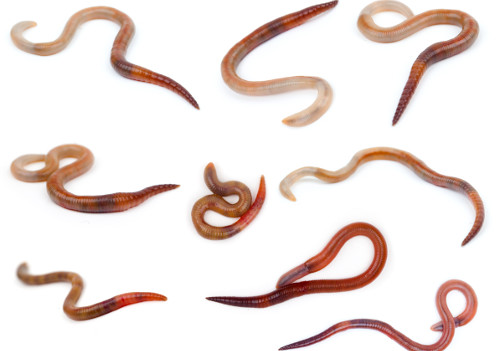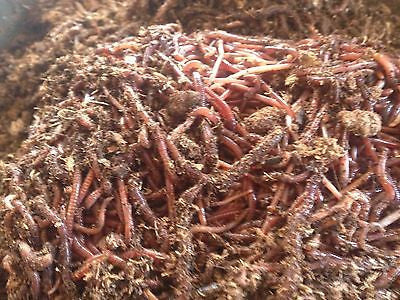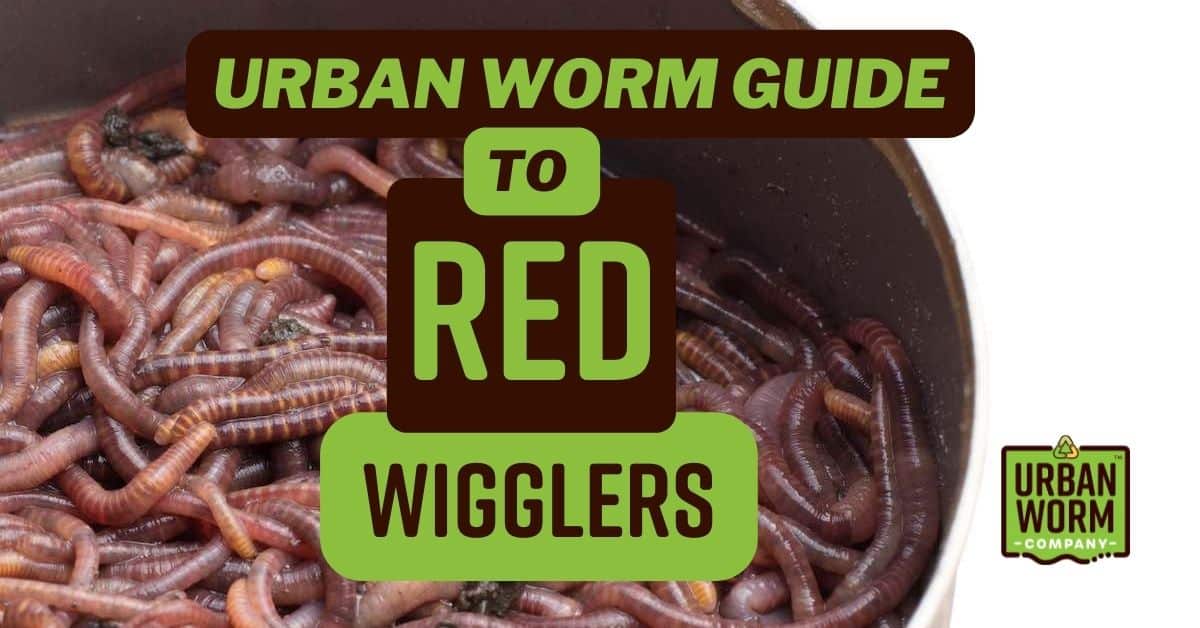Purchase Red Wiggler Worms - Perfect for Composting and Gardening
Purchase Red Wiggler Worms - Perfect for Composting and Gardening
Blog Article
Red Wiggler Worms Demystified: Opening the Keys of Vermiculture for Greener Living and Nutrient-Rich Dirt
In the realm of sustainable techniques for improving soil quality and promoting eco-conscious living, red wiggler worms play a pivotal yet often overlooked duty. These modest animals possess the amazing ability to transform organic waste into nutrient-rich castings that act as a potent natural plant food. By delving into the world of vermiculture, one can discover a wide variety of advantages that extend far past conventional composting approaches. Comprehending the complexities of looking after these worms, enhancing their environment, and utilizing their castings can cause a greener lifestyle and much healthier soil for plants to grow.
The Duty of Red Wiggler Worms
Red Wiggler worms play an important duty in composting systems by effectively breaking down natural matter right into nutrient-rich castings. These ravenous eaters take in a variety of natural materials, such as kitchen area scraps, yard waste, and paper products. As they feed, the worms' digestive procedures damage down the raw material right into a penalty, dark, and nutrient-dense material called worm castings or vermicompost.
The castings created by Red Wiggler worms are highly beneficial for soil health and wellness and plant development. They are rich in important nutrients like phosphorus, nitrogen, and potassium, which are vital for sustaining healthy and balanced plant growth. Additionally, worm castings consist of useful microorganisms and enzymes that assist enhance dirt framework, boost water retention, and improve nutrient uptake by plants.
Advantages of Vermicomposting

Furthermore, vermicompost, the nutrient-rich output of vermicomposting, functions as an exceptional organic plant food and dirt conditioner. It enhances soil structure, improves soil oygenation, and boosts dirt wetness retention. These buildings contribute to much healthier plants with more powerful root systems and far better resistance to insects and conditions. Vermicompost also improves the soil with crucial nutrients like nitrogen, potassium, and phosphorus, advertising plant growth and general dirt fertility.
Furthermore, vermicomposting assistances sustainable horticulture techniques by supplying a natural and chemical-free choice to synthetic plant foods. Red Wiggler Worms. This eco-friendly strategy not just enriches the soil however additionally helps in reducing reliance on damaging chemicals, advertising a greener and a lot more lasting means of horticulture
Establishing Up a Worm Bin
When establishing a worm bin for vermicomposting, proper setup is vital to ensure the success of the composting process. The very first step in setting up a worm container is picking an ideal container.
After including the bed linen, introduce the red wiggler worms to the bin. It is advised to begin with a handful of worms and slowly enhance as they multiply. The worms need to after that be offered with food scraps such as vegetables and fruit peels, coffee grounds, and eggshells. It is necessary to avoid including meat, dairy, oily, or salted foods to stop attracting bugs and creating undesirable smells.
Consistently keep an eye on the wetness degrees and temperature in the worm container to ensure optimum conditions More about the author for the worms. With correct arrangement and maintenance, the worm bin will efficiently transform natural waste right into nutrient-rich garden compost for your plants and yard.
Harvesting Worm Castings
To successfully collect nutrient-rich worm castings from your vermicomposting system, a methodical harvesting approach is necessary. There are a few vital steps to comply with to ensure an effective procedure when it comes time to harvest the worm castings. To start with, stop adding fresh food scraps away of the worm bin for a pair of weeks before gathering. This encourages the worms to move to the side with fresh bed linen and food, making it easier to scoop out the spreadings from the opposite side.

Troubleshooting Common Issues
Recognizing and attending to usual challenges that might emerge throughout the vermicomposting process is important for preserving a efficient and healthy and balanced worm container. Including excess food scraps can lead to a build-up of dampness and level of acidity in the worm container, possibly hurting the worms. Another problem why not try this out is undesirable smells rising from the worm bin.
In addition, if the worm populace is declining or the worms show up unhealthy, it might be due to ecological stress factors such as extreme temperature levels or pH degrees. Checking these aspects and making necessary modifications is vital for the well-being of the worms. By fixing these typical issues without delay, vermicomposters can make sure a smooth and successful vermicomposting procedure while keeping a thriving worm populace.

Final Thought
In verdict, red wiggler worms play an essential role in vermiculture by damaging down natural matter into nutrient-rich dirt. Setting up a worm bin is important for successful vermiculture, and collecting worm spreadings offers important compost for navigate here gardening.
As they feed, the worms' digestive system procedures damage down the natural issue into a penalty, dark, and nutrient-dense material known as worm castings or vermicompost.
The castings created by Red Wiggler worms are extremely advantageous for soil health and wellness and plant development. Adding excess food scraps can lead to a buildup of wetness and level of acidity in the worm bin, potentially harming the worms.Additionally, if the worm population is decreasing or the worms show up harmful, it could be due to ecological stress factors such as extreme temperature levels or pH degrees. Establishing up a worm bin is necessary for effective vermiculture, and gathering worm castings supplies useful compost for gardening.
Report this page